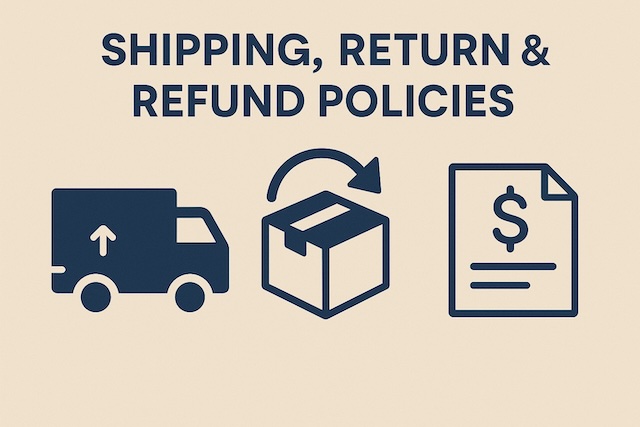Why Policies Matter
Shipping and refund practices directly affect customer trust — and they’re also legally regulated. The FTC and state agencies can penalize businesses that mislead customers about delivery or refuse lawful refunds.
- If you advertise shipping times, you must deliver within that time frame.
- If no timeframe is stated, you must ship within 30 days.
- If delays occur, you must notify the customer and give them the option to cancel for a refund.
Refund & Return Policies
- U.S. law doesn’t mandate returns in most cases, but you must honor your stated policy.
- Policies must be clear, visible, and fair.
- Some states (like California) require refunds if policies are not disclosed.
Example: A store with a “No Returns” policy buried in fine print was forced by state regulators to offer refunds and update its website.
Disclosures for Shipping Costs
- All fees (shipping, handling, customs duties) must be disclosed before checkout.
- Surprise fees after purchase are considered deceptive.
International Shipping Risks
- Customs duties, tariffs, and taxes vary by country.
- Failure to disclose possible international fees can lead to disputes and chargebacks.
Key Takeaways
- The FTC requires timely shipping and transparent communication.
- Refund policies must be easy to find and enforceable.
- Hidden fees or vague shipping promises can lead to fines and disputes.
Action Step: Review your shipping and refund policies. Make sure they’re easy to find on your website and consistent with FTC rules.
If you want to read more about shipping, return & refund policies, please see Recommended Books.





